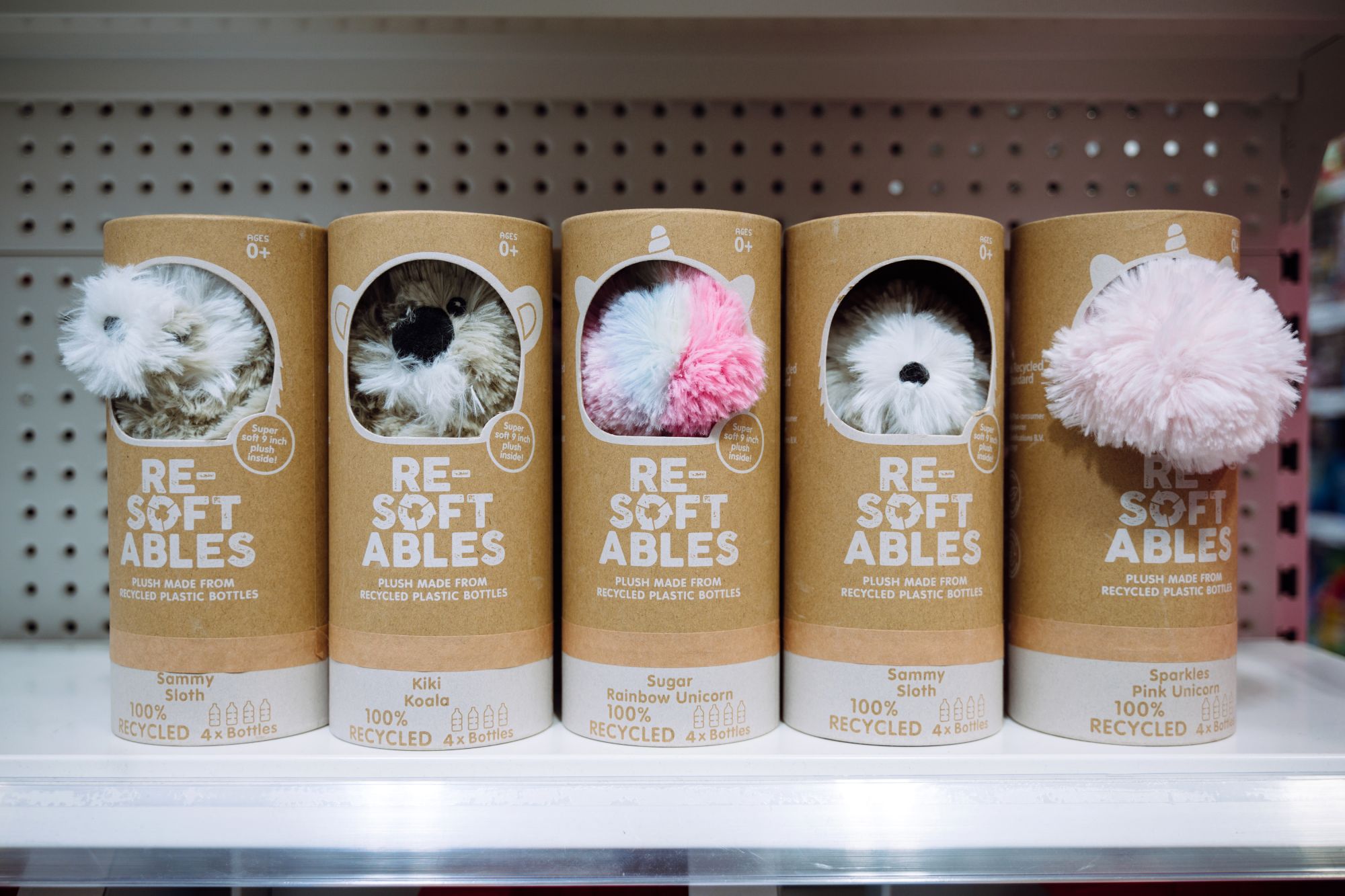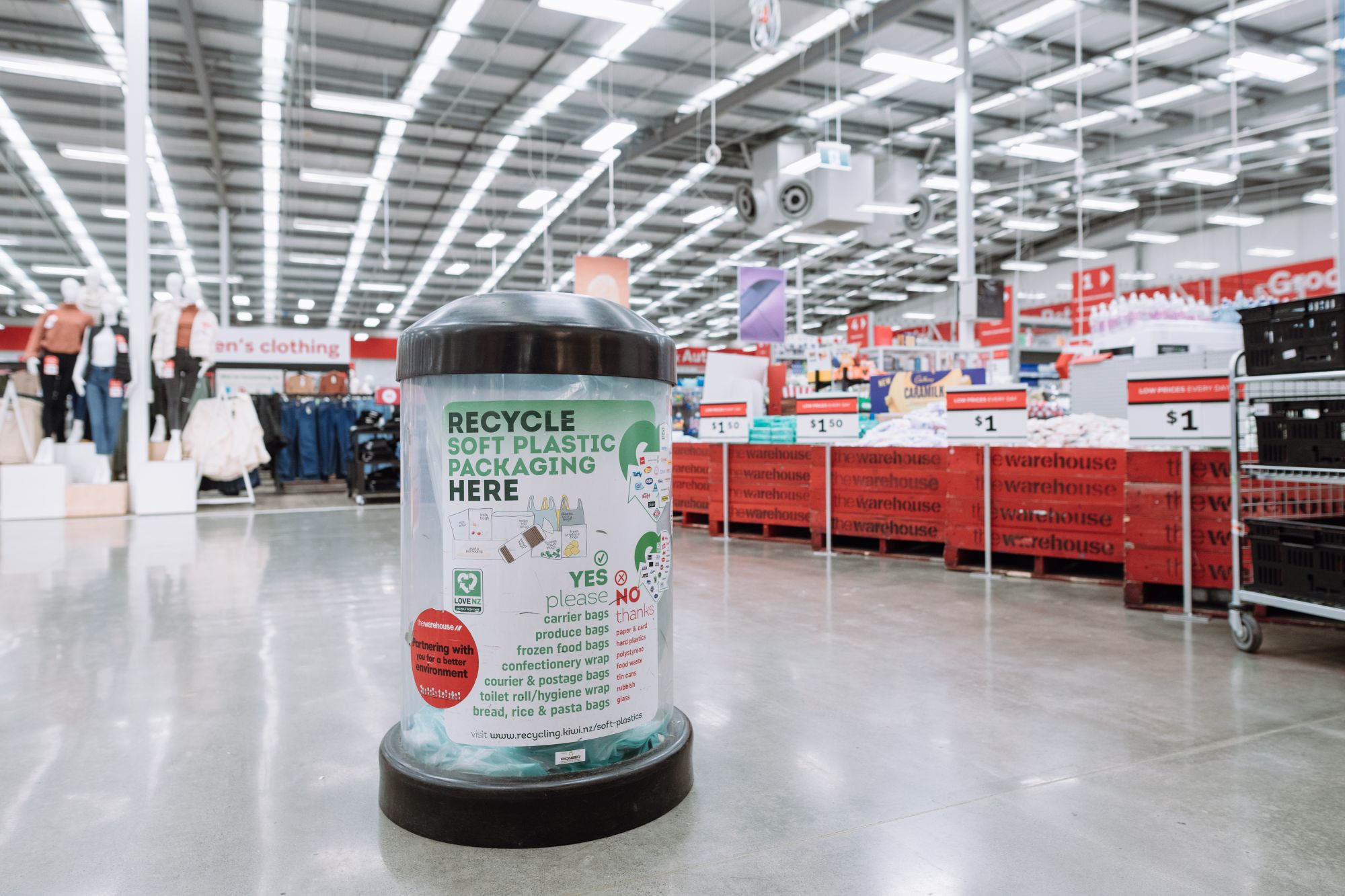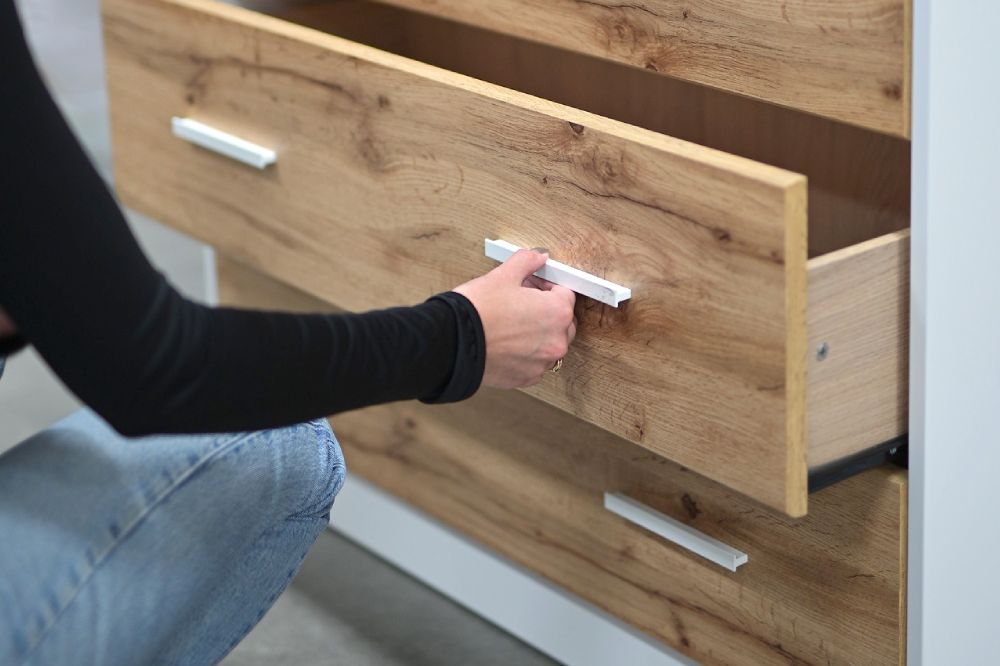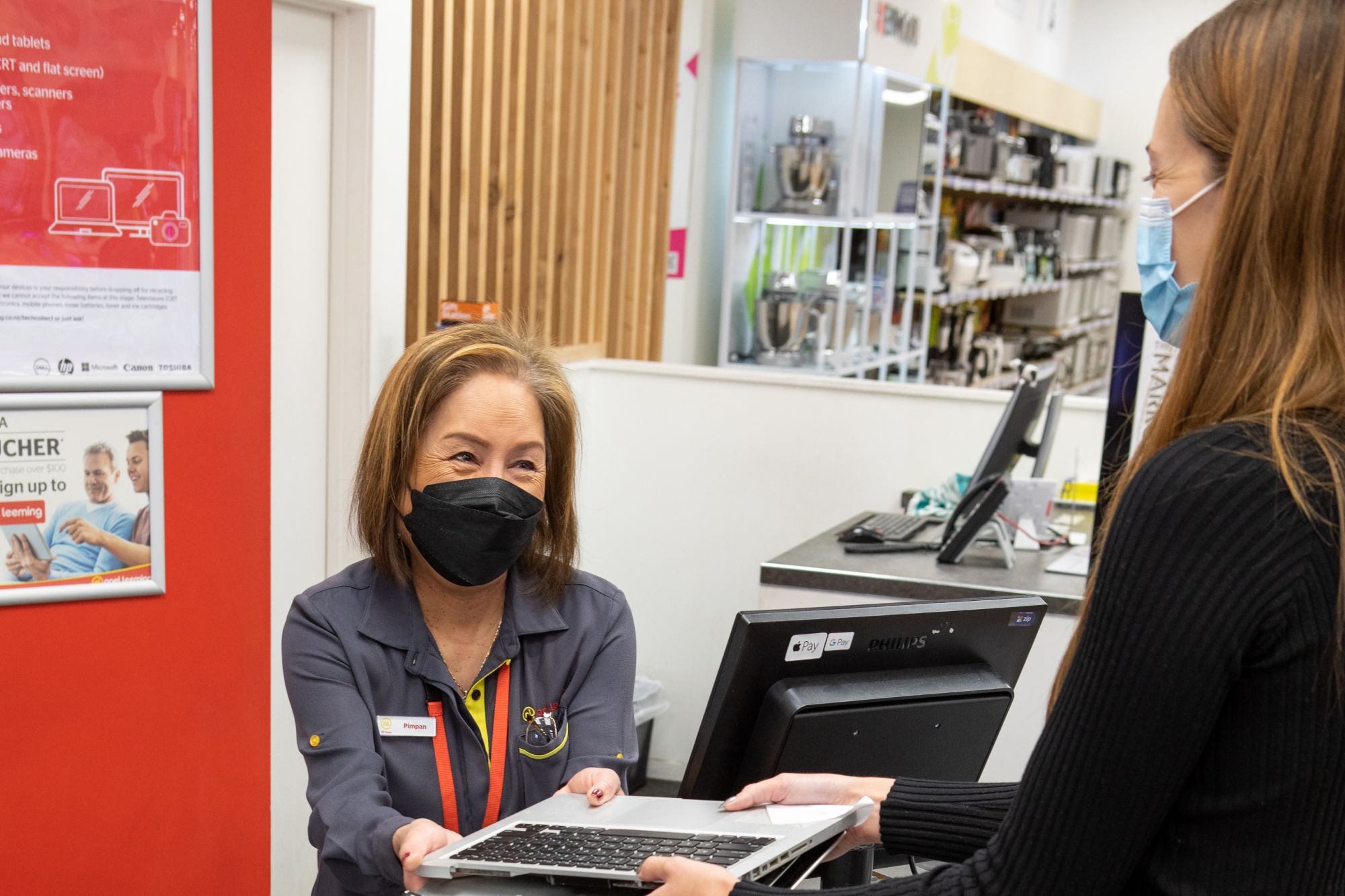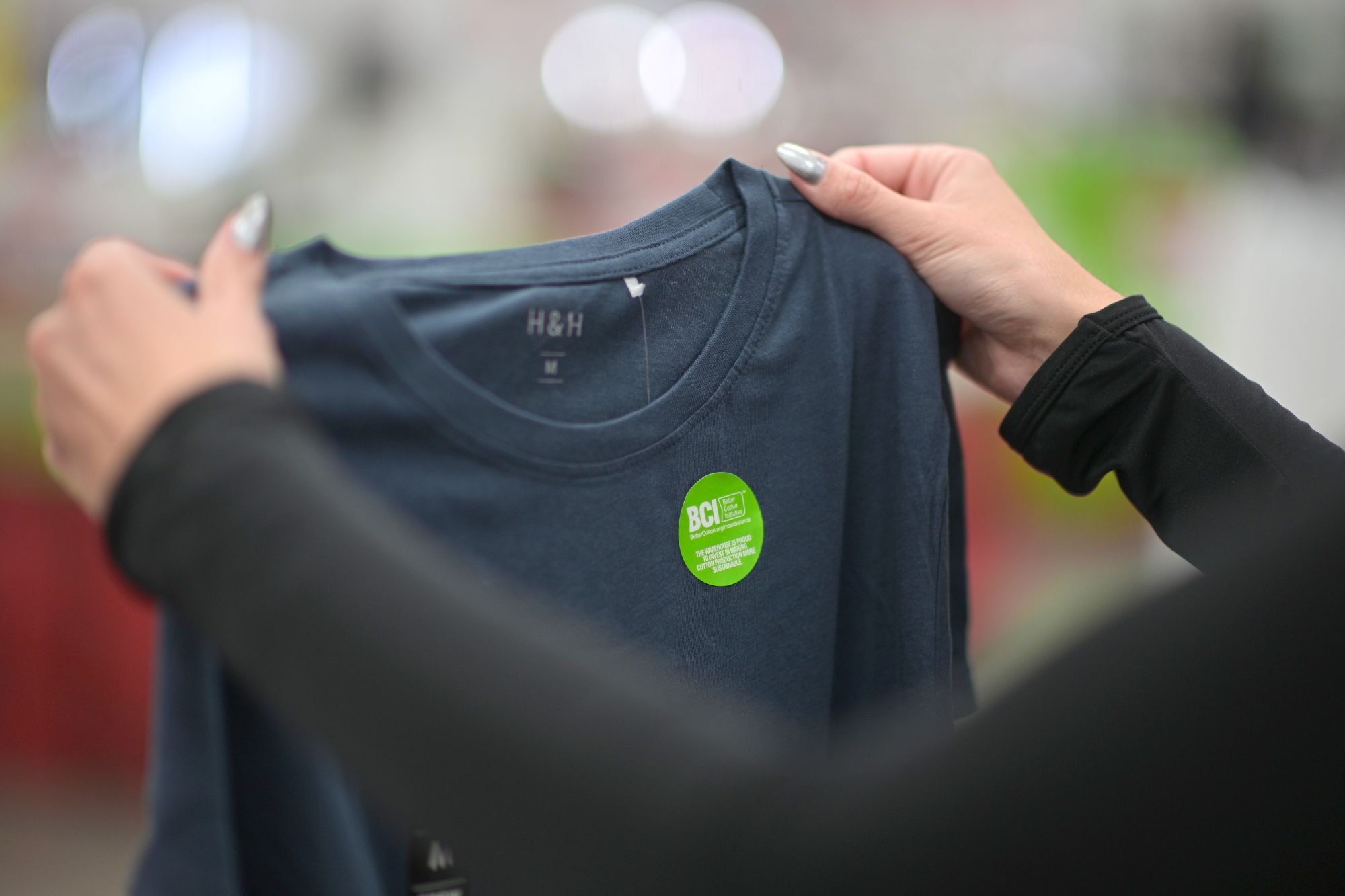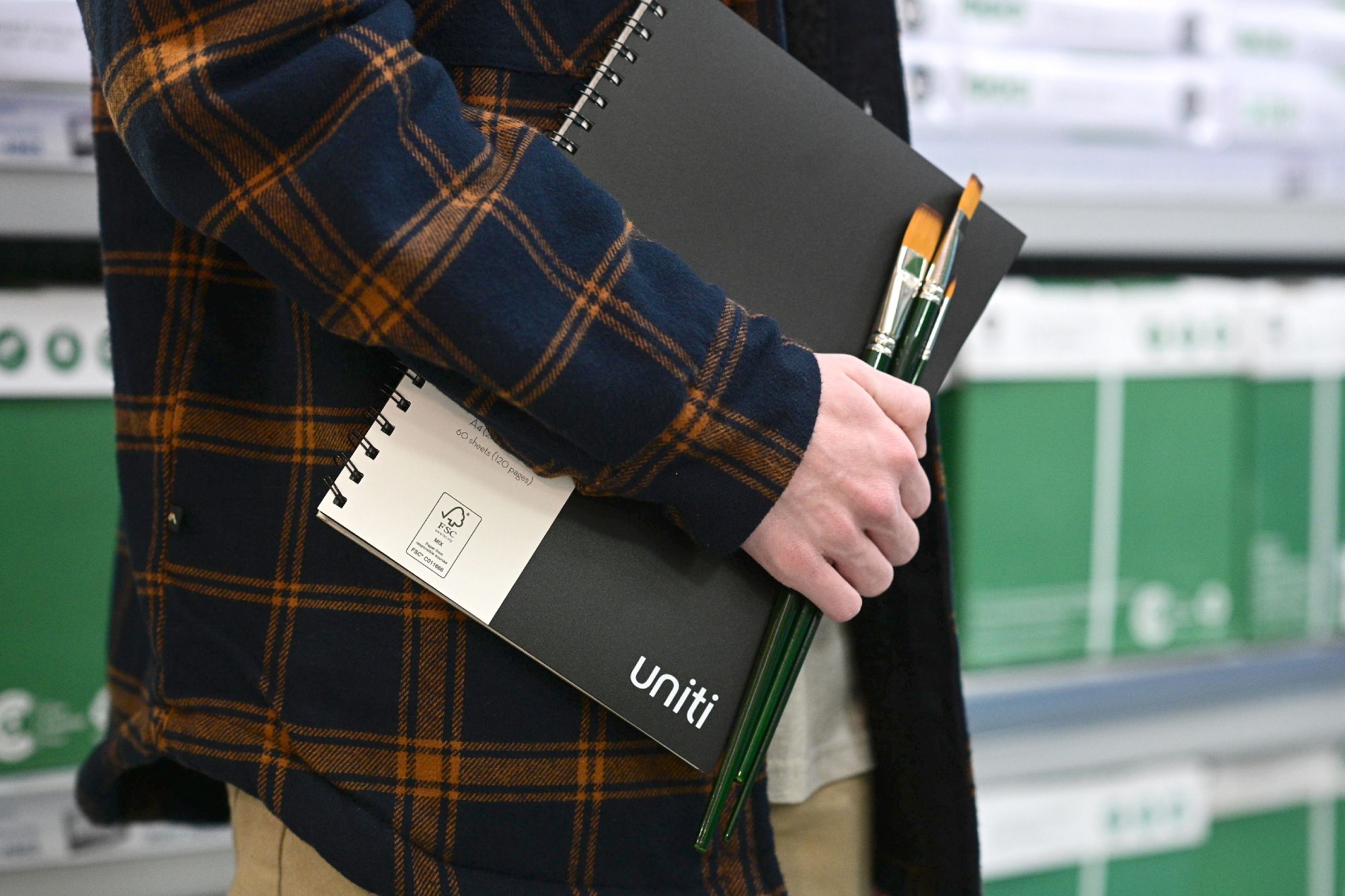SUSTAINABLE LIVING
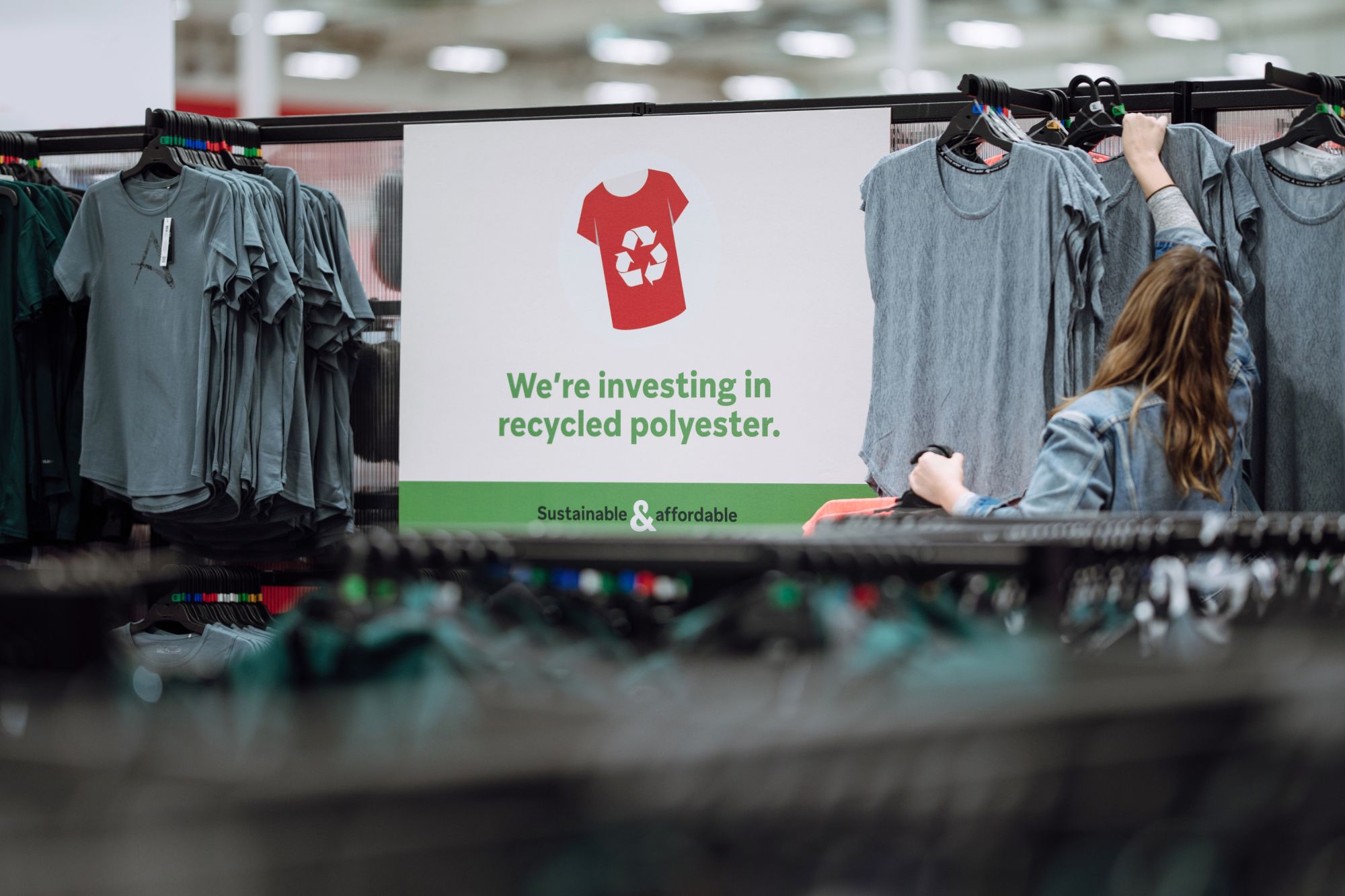
We want to take ambitious action to make sustainable living easy and affordable for everyone.
We will do this through four Building Blocks, which will each deliver specific outcomes.
1
Increasing the number of sustainable products with sustainable packaging and certified ingredients, and help our suppliers reduce their GHG emissions;
2
Enabling sustainable living solutions that help our customers live a healthy, low-carbon lifestyle;
3
Providing circularity solutions that reduce the amount of post-consumer waste going to landfill; and
4
Increasing the sustainability performance of our operations and decreasing our operational carbon emissions (Scope 1 & 2) to zero by 2040.
Each of these Building Blocks have short-term and long-term targets. They are supported by new data and resource capabilities that embed sustainability outcomes in everything we do.
This journey means The Warehouse Group is committed to new ambitions and we have initiatives underpinning each of these which give us a high level of confidence that we will:
- achieve 100% of our private label products and packaging to be sustainable or have a circularity solution by 2035;
- have 2 million New Zealanders use our sustainable living solutions by 2035;
- enable 2.5 million customers to use our waste recycling or circular reuse solutions by 2030;
- reach zero emissions in our operational emissions (Scope 1 & Scope 2) by 2040; and
- target an 80% reduction of our Scope 3 emissions covering our upstream product suppliers and shipping and transportation by 2040.
Our targets are ambitious, and for some aspects we know that this will require technological solutions that currently do not exist, like a hydrogen-fuelled shipping fleet. However, we have strong foundations in sustainable initiatives and investments, and we are changing the shape of our business to achieve our goals. We are taking a stand in our Group wide approach to sustainability.
SUSTAINABILITY BUILDING BLOCKS
Sustainable products
Increasing the number of sustainable products with sustainable packaging and certified ingredients, and help our suppliers reduce their GHG emissions
Increase the share of private label sales with sustainable packaging to 50% by 2025 and 100% by 2035;
Increase the share of private label sales from sustainable products, or products with circularity solutions to 50% by 2025 and 100% by 2035; and
Reduce the Group’s Scope 3 emissions by 50% by 2035 and by 80% by 2040.
We continue to extend sustainability attributes as our suppliers’ capacity develops, while reflecting the evolving industry best practices and monitoring the impact on cost and sell-through of our sourcing decisions. Internally, we are creating new tools, policies and capabilities that integrate sustainability attributes and carbon data into decision making.
Reducing Scope 3 emissions is the biggest challenge for any retailer – this means supporting suppliers’ efforts to reduce their own Scope 1 & 2 emissions, and making complex decisions about the products we buy. We believe that new data capabilities and supplier scorecards with data integration at the product level will help us achieve our targets.
Our targets are measured against private label products at The Warehouse and Warehouse Stationery, with planned expansion to other brands.
Sustainable living solutions
Enabling sustainable living solutions that help our customers live a healthy, low-carbon lifestyle
The number of customers using the Group’s sustainable living solutions to be 2 million New Zealanders by 2035;
Increase our sales of energy and water- efficient products by 50% by 2025 (from 2021 baseline); and
Install electric vehicle charging stations at all stores, where possible, by 2030.
We are launching a new customer- centric value proposition around sustainable living solutions.
This focuses not only on product sustainability attributes, but on customer sustainability benefits. This puts us in a unique position to help our customers live more sustainably and understand the impact of the choices they make.
Our belief is that sustainable living solutions will be a growth area for our business.
This requires us to develop deeper consumer relationships to explore data insights, identifying what is and isn’t working in stores, eCommerce and at home, and build an approach to telling the story of empowering consumers to live sustainably through new product and lifestyle choices.
Circularity solutions
Providing circularity solutions that reduce the amount of post-consumer waste going to landfill
Enable 2.5 million customers to use our waste recycling or circular reuse solutions by 2030.
- Expand hard-to-recycle packaging solutions to 100% of our stores by end of FY23;
- Expand soft plastics recycling scheme to 100% of our stores by end of FY23; and
- Expand e-waste collection solutions to 100% of TWL, WSL and NLG stores by end of FY23.
Helping our customers live a circular lifestyle means giving them the tools to dispose of waste and products at the end of their useful life.
Over the past year, we have increased the amount of soft plastics collected in our stores from 6.2 million units in FY21 to 10.6 million units in FY22. This shows us that some customers have already integrated ‘bring it back’ into their shopping behaviours.
We are committed to expanding our post-consumer waste recycling solutions from soft plastic and TerraCycle NZ waste recycling at The Warehouse to e-waste and mobile phone recycling solutions at Noel Leeming and Warehouse Stationery stores, with more initiatives to come.
We are looking at more product circularity and recycling initiatives and the development of back-end logistics and integration into the customer experience.
Sustainable operations
Increasing the sustainability performance of our operations and decreasing our operational carbon emissions (Scope 1 & 2) to zero by 2040
Reduce Scope 1 & 2 emissions aligned to a 1.5 degree trajectory with the pathway to zero emissions by 2040;
Reduce domestic and international freight emissions by 40% by 2030 and only use sustainable transportation fuel by 2040; and
Become a zero-waste status organisation by 2025.
The Warehouse Group has proudly been CarbonZero since 2019. This covers our Scope 1, 2 and measured Scope 31 emissions generated by the transportation and delivery of our products from port of ownership to our stores and customers.
We need to do more to reduce our own emissions, including new initiatives to reduce our electricity usage, freight emissions and our operational waste.
We already have initiatives in flight like rolling out LED lighting throughout our stores, electrifying our passenger fleet, forklifts and light commercial vehicles, and working with our waste and recycling partners to increase the amount of operational waste diverted from landfill.
1 Measured scope 3 emissions covers product transportation, business travel and waste services.
SUSTAINABLE PRODUCTS
Increasing the number of sustainable products with sustainable packaging and certified ingredients, and help our suppliers reduce their GHG emissions
Increase the share of private label sales with sustainable packaging to 50% by 2025 and 100% by 2035;
Increase the share of private label sales from sustainable products, or products with circularity solutions to 50% by 2025 and 100% by 2035; and
Reduce the Group’s Scope 3 emissions by 50% by 2035 and by 80% by 2040.
We continue to extend sustainability attributes as our suppliers’ capacity develops, while reflecting the evolving industry best practices and monitoring the impact on cost and sell-through of our sourcing decisions. Internally, we are creating new tools, policies and capabilities that integrate sustainability attributes and carbon data into decision making.
Reducing Scope 3 emissions is the biggest challenge for any retailer – this means supporting suppliers’ efforts to reduce their own Scope 1 & 2 emissions, and making complex decisions about the products we buy. We believe that new data capabilities and supplier scorecards with data integration at the product level will help us achieve our targets.
Our targets are measured against private label products at The Warehouse and Warehouse Stationery, with planned expansion to other brands.
SUSTAINABLE LIVING SOLUTIONS
Enabling sustainable living solutions that help our customers live a healthy, low-carbon lifestyle
The number of customers using the Group’s sustainable living solutions to be 2 million New Zealanders by 2035;
Increase our sales of energy and water- efficient products by 50% by 2025 (from 2021 baseline); and
Install electric vehicle charging stations at all stores, where possible, by 2030.
We are launching a new customer- centric value proposition around sustainable living solutions.
This focuses not only on product sustainability attributes, but on customer sustainability benefits. This puts us in a unique position to help our customers live more sustainably and understand the impact of the choices they make.
Our belief is that sustainable living solutions will be a growth area for our business.
This requires us to develop deeper consumer relationships to explore data insights, identifying what is and isn’t working in stores, eCommerce and at home, and build an approach to telling the story of empowering consumers to live sustainably through new product and lifestyle choices.
CIRCULARITY SOLUTIONS
Providing circularity solutions that reduce the amount of post-consumer waste going to landfill
Enable 2.5 million customers to use our waste recycling or circular reuse solutions by 2030.
- Expand hard-to-recycle packaging solutions to 100% of our stores by end of FY23;
- Expand soft plastics recycling scheme to 100% of our stores by end of FY23; and
- Expand e-waste collection solutions to 100% of TWL, WSL and NLG stores by end of FY23.
Helping our customers live a circular lifestyle means giving them the tools to dispose of waste and products at the end of their useful life.
Over the past year, we have increased the amount of soft plastics collected in our stores from 6.2 million units in FY21 to 10.6 million units in FY22. This shows us that some customers have already integrated ‘bring it back’ into their shopping behaviours.
We are committed to expanding our post-consumer waste recycling solutions from soft plastic and TerraCycle NZ waste recycling at The Warehouse to e-waste and mobile phone recycling solutions at Noel Leeming and Warehouse Stationery stores, with more initiatives to come.
We are looking at more product circularity and recycling initiatives and the development of back-end logistics and integration into the customer experience.
SUSTAINABLE OPERATIONS
Increasing the sustainability performance of our operations and decreasing our operational carbon emissions (Scope 1 & 2) to zero by 2040
Reduce Scope 1 & 2 emissions aligned to a 1.5 degree trajectory with the pathway to zero emissions by 2040;
Reduce domestic and international freight emissions by 40% by 2030 and only use sustainable transportation fuel by 2040; and
Become a zero-waste status organisation by 2025.
The Warehouse Group has proudly been CarbonZero since 2019. This covers our Scope 1, 2 and measured Scope 31 emissions generated by the transportation and delivery of our products from port of ownership to our stores and customers.
We need to do more to reduce our own emissions, including new initiatives to reduce our electricity usage, freight emissions and our operational waste.
We already have initiatives in flight like rolling out LED lighting throughout our stores, electrifying our passenger fleet, forklifts and light commercial vehicles, and working with our waste and recycling partners to increase the amount of operational waste diverted from landfill.
1 Measured scope 3 emissions covers product transportation, business travel and waste services.
